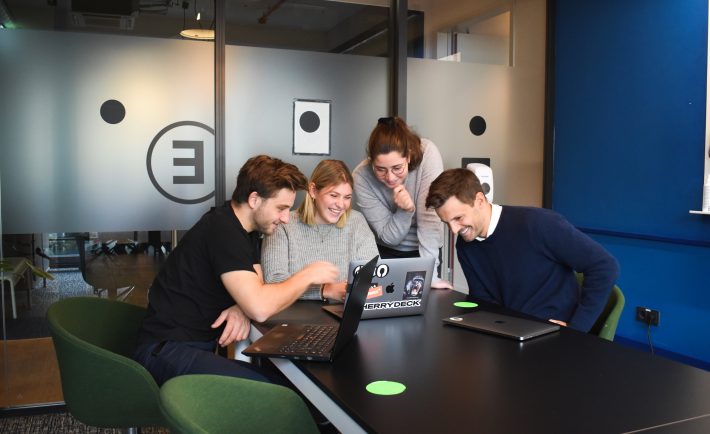Do you sometimes feel like you’re the only one doing any work on your group projects? Or that you always have to be the one to take charge?
Let’s discuss some of the best ways to become a better collaborator. We will talk about how to share tasks equitably, how to communicate effectively with your team members, and how to stay organized. We will also offer some advice on how to deal with conflicts and navigate tricky situations.
By following these tips, you will find that teamwork becomes much easier—and more fun.
Developing good listening skills
When you’re trying to become a better collaborator, the first step is to develop good listening skills.
This means being aware of your surroundings and the people you’re working with. It also means paying attention to what’s being said, and not just waiting for your turn to talk.
Encouraging others to offer solutions before giving your own is another way of showing that you’re listening. It also shows that you’re open to other people’s ideas and that you’re not just trying to impose your views on the group.
Finally, always restate key points that you’ve heard so that you can check for accuracy. This will ensure that everyone is on the same page and that any misunderstandings are cleared up right away.
Respecting others’ time and efforts

Image Credits: unsplash.com
Respecting everyone’s time and efforts mean being upfront about your expectations and encouraging a respectful discussion. It also means recognizing the results of everyone’s hard work and celebrating positive outcomes.
By doing this, you’re setting the tone for a productive and positive working environment. And when everyone is focused on working together to find solutions, you’re more likely to achieve great things.
Building on your communication skills
Be aware of your communication style and understand that there is more than one way to communicate effectively. Second, adjust your communication style to fit the situation. And third, hone active listening skills.
Here are some specific things you can do to work on your communication skills:
- Make sure you understand the task at hand and the goal you’re trying to achieve
- Repeat back what you’ve heard to ensure that you understand
- Use “I” statements rather than “you” statements
- Ask questions if you’re unclear about something
- Seek first to understand, then to be understood
Learning to lead – without being bossy

Image Credits: thebalancecareers.com
Being assertive is a crucial skill to have, especially if you want to be a leader.
But there’s a difference between being assertive and being bossy—and it’s a line you need to be careful not to cross.
When you’re assertive, you’re confident in yourself and your ability to contribute to the team, but you’re also respectful of other people’s opinions and willing to compromise when necessary.
On the other hand, being bossy means that you’re trying to control the team and get your way, without any regard for what others might want or think. So how can you make sure you’re being assertive and not bossy?
Well, be transparent and truthful with your team, but also tactful. You need to be able to explain your ideas and listen to feedback, without getting defensive or taking things personally. It’s also good to understand what leadership is, and the different team dynamics at play. If you can learn how to lead without being bossy, you will be much more influential—and respected—as a collaborator.
Becoming aware of behavioral differences
You might not even realize it, but the way you act can be a big contributing factor to whether or not people want to collaborate with you.
Maybe you’re the type of person who’s always trying to take control and be the commander, without considering other people’s input. Or maybe you’re so quiet and shy that people don’t even know you have good ideas.
Whatever the case may be, be aware of behavioral differences and how they can impact collaboration. If you’re not sure where to start, here are some tips:
- Talk to others about their experiences collaborating with you. What do they say your strengths and weaknesses are?
- Pay attention to the way you act in group settings. Do you tend to take charge, or do you sit back and let others take the lead?
- Be open to feedback and willing to make changes. If you want to be a better collaborator, you need to be open to modifications.
The good news is that being more of a team player is something that can be learned. And it’s not about pretending to be someone you’re not. It’s about developing the skills you need to be successful in collaborative environments. It starts with understanding what team players do differently. And then it involves adopting those same behaviors yourself. And finally, it requires practicing those behaviors until they become second nature. Being a better collaborator is a journey, not a destination. And the good news is that you can get there with practice and patience.

